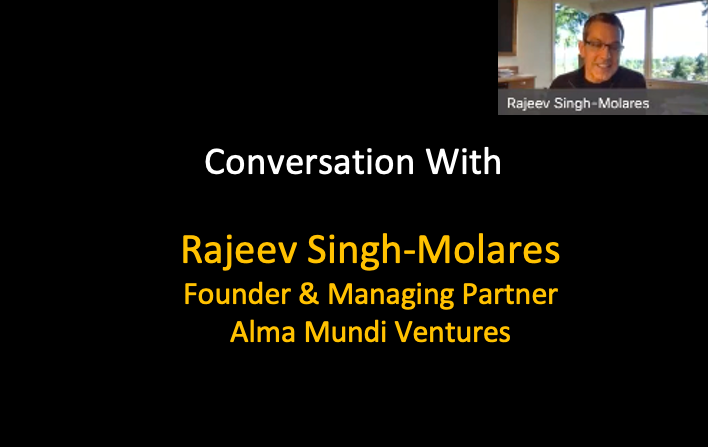Seed Capital
1Mby1M Virtual Accelerator Investor Forum: With Shane Neman, Principal at Neman Ventures (Part 3)
Sramana Mitra: What was the business model?
Shane Neman: It was the traditional media model where we sold ads on our website. We also sold the photos and the print copies. It doesn’t seem like it, but we found a way to find a third-party printer and batch take them and then you sell them for a pretty expensive price. We started to do our own events because we had our own database.
>>>1Mby1M Virtual Accelerator Investor Forum: With Shane Neman, Principal at Neman Ventures (Part 2)
Sramana Mitra: There was little due diligence before people were willing to write checks at that time.
Shane Neman: In retrospect, I wouldn’t have given myself a check. We got almost $2 million. I wasn’t part of the finance portion of things. I was the CTO. We built this company and hired people. We built a platform that was essentially Microsoft 365.
We called it utilizing computing because we didn’t have the word for SaaS. You had to pay a monthly fee just like you would pay a monthly fee for your utility bill. We would get your apps delivered to you through a web portal. We built essentially an AppStore because you could pick which apps you wanted for how many users and pay for them on a monthly basis.
>>>1Mby1M Virtual Accelerator Investor Forum: With Shane Neman, Principal at Neman Ventures (Part 1)

Shane Neman is the Founder of EZ Texting, JoonBug.com, and Principal at Neman Ventures. Shane has bootstrapped two companies as a solo entrepreneur, found successful exits for both, and is now an investor. Needless to say, he has no bias against solopreneurs.
Sramana Mitra: We are going to spend quite a bit of time today with Shane Neman. I met Shane a while ago in his Entrepreneur Journey story. I found a lot of interesting insights and lessons from his journey that I wanted to highlight and showcase for you. That is what we are going to do for a while today then we will see what else we have time for. Welcome to the show, Shane.
>>>536th Roundtable Recording on June 24, 2021: With Rajeev Singh-Molares, Alma Mundi Ventures
In case you missed it, you can listen to the recording here:
Roundtable Recap: June 24 – Discussion on the Europe-US Bridge for Tech Startups

During this week’s roundtable, we had as our guest Rajeev Singh-Morales at Alma Mundi Ventures. We discussed the Europe – US bridge for tech startups.
Adios
As for our entrepreneur pitch, we had Tarun Gulati from Pune, India, pitching Adios, an app for achieving mental clarity. It aligns with the mental health tech startup trend that Rajeev discussed earlier.
FaveKitchens
Next, we had Praveen Akula from Seattle, Washington, pitching FaveKitchens, a restaurant tech startup that is already doing significant revenue and wants to raise a round.
You can listen to the recording here:
If you haven’t already, please study our free Bootstrapping course and the Investor Introductions page.
How Investors Think

If you’ve been bootstrapping your company for a bit, and are wondering whether or not to raise money, remember, Investors are looking to multiply the money that they put into startups.
Multiply by how much? 2X? 3X? 5X? 10X? 20X?
534th 1Mby1M Entrepreneurship Podcast With Jon Staenberg, Staenberg Venture Partners
Jon Staenberg, Managing Partner at Staenberg Venture Partners, discusses the trends he is seeing and investment thesis he is following.
Podcast: Play in new window | Download
Subscribe: Apple Podcasts | Android | Google Play | Stitcher | TuneIn | RSS
532nd 1Mby1M Entrepreneurship Podcast With Karthee Madasamy, MFV Ventures
Karthee Madasamy is Founder and Managing Partner at Mobile Foundation Ventures. We discuss the nuances of Deep Tech investing.
Podcast: Play in new window | Download
Subscribe: Apple Podcasts | Android | Google Play | Stitcher | TuneIn | RSS
